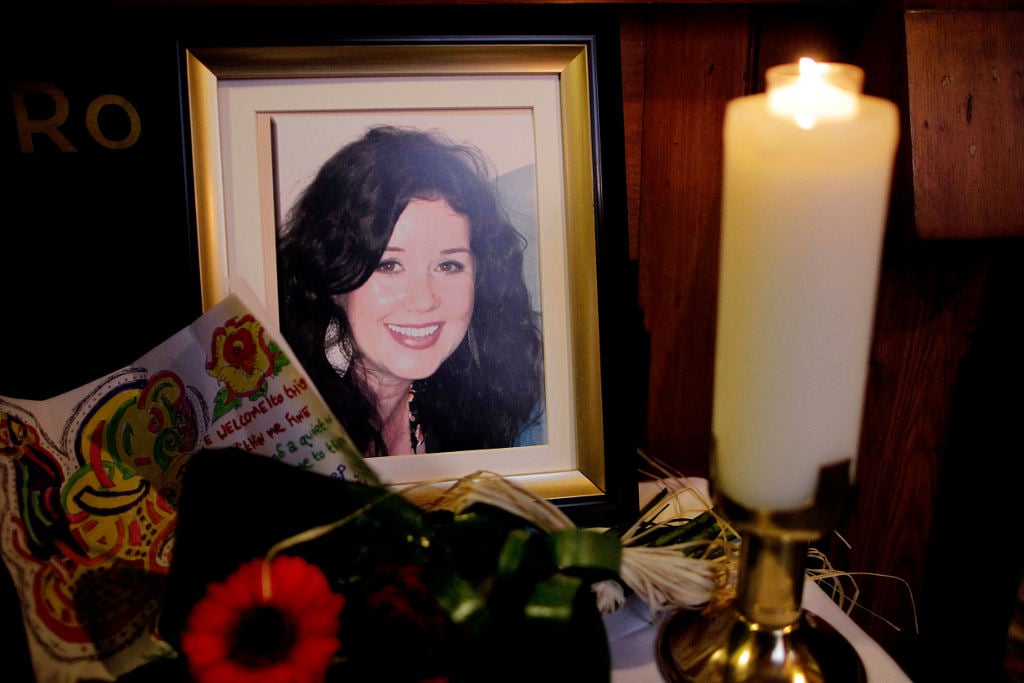Ten Years For One Punch, Parole For Rape: How The Judicial System Continues To Fail Women
Adrian Bayley has just been convicted of more than 20 counts of rape. So why was he walking free the night he raped and killed Jill Meagher?

This article deals with sexual violence, assault and rape.
–
A headline posted on The Age today revealed that Adrian Bayley — the man found guilty of the tragic 2012 rape and murder of Jill Meagher — has now been convicted of more than 20 counts of rape.
The headline, splashed in red across the front The Age online reads ‘Revealed – Adrian Bayley’s savage past’. I read through the article in horror: since being convicted of Jill Meagher’s death, Bayley has stood trial for three separate attacks on three separate women — trials kept under wraps by the media in line with suppression orders. Two of the victims whose trials have just concluded were raped just months before Jill Meagher’s death. Staggeringly, the article reveals that when these crimes occurred, Bayley was out on parole, having served time for a string of rapes committed in 2000.
News of this nature must be unknowably heart-breaking for Bayley’s victims and their families. My family lost someone in an attack two years ago, and I have seen first-hand how complex it is for people to heal in the wake of seemingly random violence. The senselessness that a man with prior convictions for sexual assault was free not ten years later to commit not only another string of rapes, but also murder, must only compound this.
And yet, it’s a story we’ve heard before.
Greg Anderson – the father and killer of Luke Batty – had come to police attention years earlier for assaulting and threatening to kill Luke’s mother, Rosie Batty. When she involved the police however, she was not asked whether she needed an intervention order, and he was not charged. Earlier this year it was revealed that Man Haron Monis, the man responsible for the infamous Sydney Siege, had been charged with 40 counts of sexual assault and accessory to the attempted murder of his ex-partner, before he held 18 people hostage and murdered one late last year.
That these men were mentally ill, I do not doubt. That these men have had our legal, parole and health systems fail them in some way seems likely. It seems that these most recent revelations about Adrian Bayley are garnering the sort of attention they deserve; the headlines suggest an outraged media, and a review of the Parole Board has found that, in this case, the system failed. “He ought to have been known by then to be a recidivist serious, violent sexual offender, with a history of being so from a young age and with an established pattern of doing so,” said High Court judge Ian Callinan.
But what can be done now? Why were any of these men free?
Late last year the Victorian government proposed mandatory ten-year sentences for “one-punch” killers. “One-punch” kills and alcohol related violence unleashed a moral panic embraced and exploited by our media and our lawmakers in recent years, so much so that broad changes have been introduced to liquor licensing and sentencing for offenders.
90 Australians were killed by “one punch” king hits between 2000 – 2012. Over twelve months, on average, one Australian woman is killed each week, by an intimate partner. According to Destroy the Joint, at least 22 Australian women have died as a result of violence this year, including 17-year-old Masa Vukotic, who was laid to rest at Springvale Cemetery today after an alleged assault. 22 Australian women, and it’s only March. According to The Guardian Australia, eight of those women had police lay charges against their partners or ex-partners. One punch hits kill less people than violence against women does, and yet where is our legislative change? Where is our media furor?
Women exist at the frontline of men’s violence. We pay for their anger with our lives. When only the most grievous offenses committed against women attract sentences proportionate to the crimes committed, our cultural attitudes to violence against women need to be examined. We desperately need greater sentencing for men who harm women, but before that will come about we need broad cultural change that wholeheartedly rejects all violence against women.
–
Ellen McGregor is is an advocate, feminist and writer based in Melbourne. She is passionate about social justice.
Feature image by AFP, via Getty.